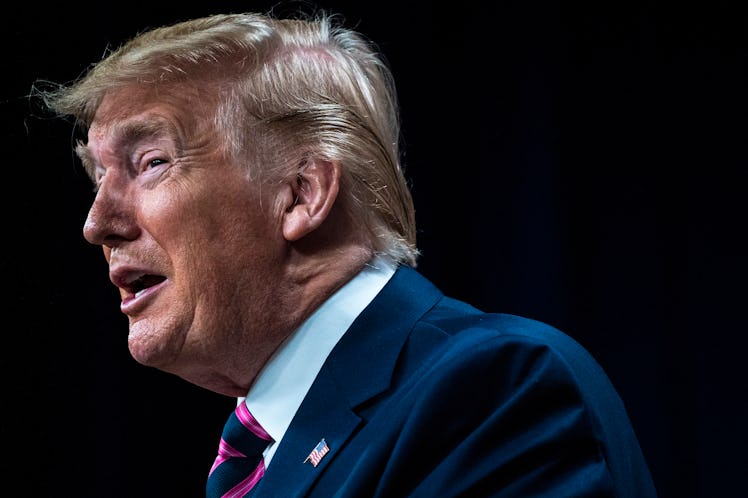
This Is How An Impeached President Can Still Finish Their Term
After months of investigations and heated partisan debates, the House Judiciary Committee voted on Friday, Dec. 13 to approve two articles of impeachment against President Donald Trump. The full House of Representatives is gearing up to take an impeachment vote ahead of its end-of-year recess, prompting outrage from the House's Republican minority. But even if House Democrats do manage to impeach Trump before Christmas, that won't be the last we see of Trump. That's because impeachment doesn't prevent a president from finishing their term in office — at least, not on its own.
Trump is currently facing two charges from the House of Representatives: abuse of power and obstruction of Congress, both of which are outlined in the articles of impeachment approved by the Judiciary Committee. The White House did not respond to Elite Daily's request for comment on the articles of impeachment, or the House Judiciary Committee's vote to pass them. The first charge alleges that Trump's efforts to withhold military aid from Ukraine constituted an abuse of power. This charge refers to reports that the United States government delayed releasing $391 million in military aid to Ukraine after Trump urged Ukrainian President Volodymyr Zelensky during a July 25 phone call to open up an investigation into the family of former Vice President Joe Biden, Trump's domestic political rival.
The second charge, meanwhile, alleges that Trump obstructed Congressional Democrats' impeachment inquiry into the Ukraine situation by urging key witnesses not to cooperate. Now that the House Judiciary Committee has recommended these two articles of impeachment, what's next for Trump?
Given the Democratic majority in the House and the partisan nature of impeachment votes thus far in this process, it is highly likely that Trump will be impeached. Democrats currently have a House majority of 233 representatives, and impeachment requires a simple majority vote of 218 in favor. But that does not mean that Trump's time in the White House would come to an abrupt halt. In fact, an impeached president can still serve out the remainder of their term in office. For example, both Presidents Andrew Johnson and Bill Clinton were impeached, but neither of them were convicted by the Senate, so both finished their full term in office.
Impeachment and removal from office are two separate processes. The power to impeach a president lies with the House of Representatives, while the Senate is then given the power to convict, and thus remove a president from office. However, Republicans currently hold the Senate majority, and many of them seem to be rallying to Trump, making it unlikely that Trump will be removed from office.
If the GOP-led Senate acquits Trump of the impeachment charges against him, then Trump will be able to serve out the remainder of his term, and even potentially run for re-election in 2020. How? The Senate does have the power to stop an impeached president from running from office again in future — but only if they convict the president of impeachable offenses and remove them first. If the Senate acquits Trump, they can't stop him from carrying out a re-election bid, or finishing his term in the first place.